August 16 stands as one of history’s most eventful days, witnessing the rise and fall of empires, groundbreaking discoveries, and moments that shaped our modern world across centuries of human achievement.

Politics and Government Events on August 16
1960 – Cyprus Gains Independence from United Kingdom
The Mediterranean island of Cyprus achieved its independence from British colonial rule on this historic date. The new republic emerged after years of political negotiations and civil unrest.
Archbishop Makarios III became the first president of the newly independent nation. The independence marked the end of British administration that had controlled the strategically important island since 1878.
1964 – South Vietnam Military Coup Replaces President
General Nguyễn Khánh successfully overthrew President Dương Văn Minh in a swift military coup d’état. The U.S. Embassy provided assistance in establishing a new constitution for the South Vietnamese government.
This political upheaval occurred during the escalating Vietnam War conflict. The coup reflected the ongoing instability within South Vietnam’s leadership during this critical period.
1975 – Australian Prime Minister Returns Land to Indigenous People

Prime Minister Gough Whitlam symbolically handed over land to the Gurindji people, ending the eight-year Wave Hill walk-off. This ceremony marked a landmark moment in Australian Indigenous land rights history.
The event would later inspire Paul Kelly’s famous 1991 song commemorating the achievement. The symbolic gesture represented a significant step toward recognizing Indigenous Australians’ connection to their traditional lands.
1945 – Vietnamese National Representatives’ Congress Convenes
The National Representatives’ Congress, precursor to modern Vietnam’s National Assembly, held its first meeting in Sơn Dương. This political gathering would establish the foundation for Vietnam’s future governmental structure.
The congress represented a crucial step in Vietnam’s path toward independence and political organization. Delegates from across the country participated in shaping the nation’s emerging political framework.
1920 – Communist Party of Bukhara Congress Opens
The Communist Party of Bukhara held its inaugural congress, calling for armed revolution against existing authorities. Revolutionary delegates gathered to organize resistance against traditional power structures.
The congress represented Soviet influence expanding into Central Asian territories. Party members planned systematic campaigns to establish communist control throughout the Bukhara region.
1946 – Mass Riots Erupt in Kolkata
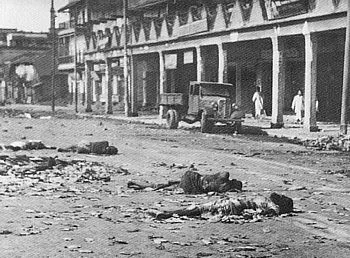
Devastating communal riots began in Kolkata, ultimately claiming more than 4,000 lives over 72 hours. The violence reflected deep-seated religious and political tensions in pre-independence India.
The riots represented one of the deadliest communal conflicts in Indian history. The violence highlighted the growing sectarian divisions that would soon lead to the partition of India.
Military and Naval History on August 16
1918 – Battle of Lake Baikal Fought
The Czechoslovak Legion engaged the Red Army in fierce combat around Lake Baikal during the Russian Civil War. This battle represented a crucial confrontation between anti-Bolshevik forces and communist troops.
The Czechoslovak Legion had been fighting to secure their evacuation route across Siberia. Their military actions significantly impacted the broader Russian Civil War and Allied intervention efforts.
1944 – World War II Mystery of Navy Blimp L-8
The US Navy blimp L-8 mysteriously drifted in from the Pacific Ocean before crashing in Daly City, California. The two-man crew had completely vanished without explanation.
Investigators never solved the disappearance of the crew members, creating one of World War II’s most enduring mysteries. The incident sparked numerous theories about what happened during the patrol mission.
1920 – Polish-Soviet War Battle of Radzymin Concludes
The Battle of Radzymin ended with the Soviet Red Army forced to retreat from its advance toward Warsaw. This decisive engagement saved the Polish capital from communist occupation.
The victory marked a turning point in the Polish-Soviet War and European history. The successful defense prevented the spread of communist revolution into Western Europe.
1943 – World War II Kommeno Massacre
German 1st Mountain Division soldiers murdered 317 Greek civilians in the village of Kommeno during brutal anti-partisan operations. The massacre represented one of the worst atrocities committed against Greek civilians.
The systematic killing demonstrated the extreme brutality of German occupation forces in Greece. Local resistance activities had prompted the German retaliation against innocent villagers.
1972 – Moroccan Air Force Attempts Coup Against King Hassan II
Royal Moroccan Air Force jets opened fire on King Hassan II’s aircraft as he returned to Rabat. The unsuccessful coup attempt nearly succeeded in assassinating the monarch.
The king survived the attack and later purged military officers involved in the conspiracy. This dramatic incident highlighted the political instability within Morocco’s military establishment.
Science and Discovery Milestones on August 16
1960 – Joseph Kittinger’s Record-Breaking Parachute Jump

Joseph Kittinger parachuted from a balloon at 102,800 feet above New Mexico, setting three world records. His jump established records for high-altitude jumping, free fall, and highest human speed without aircraft.
The remarkable achievement stood unchallenged until 2012, demonstrating its extraordinary nature. Kittinger’s courage and scientific precision advanced understanding of high-altitude human survival.
1944 – First Jet Aircraft with Forward-Swept Wings
The Junkers Ju 287 completed its maiden flight, becoming the first jet aircraft featuring forward-swept wings. This innovative design represented a significant advancement in aeronautical engineering.
German engineers pioneered this unconventional wing configuration during World War II. The experimental aircraft influenced future aviation design concepts and swept-wing technology development.
1989 – Solar Particles Disrupt Toronto Stock Exchange
A solar particle event severely affected computer systems at the Toronto Stock Exchange, forcing trading to halt. The incident demonstrated the vulnerability of electronic systems to space weather phenomena.
This event highlighted the growing dependence on electronic trading systems and their susceptibility to solar activity. The disruption prompted improvements in space weather monitoring and system protection.
1906 – Devastating Valparaíso Earthquake
An 8.2 magnitude earthquake struck central Chile, killing 3,882 people and devastating the port city of Valparaíso. The powerful tremor caused widespread destruction across the region.
The earthquake prompted significant changes in Chilean building codes and disaster preparedness. Seismologists studied the event to better understand the region’s geological activity patterns.
Cultural and Arts Events on August 16
1954 – Sports Illustrated Magazine Debuts
The inaugural issue of Sports Illustrated hit newsstands, launching what would become America’s premier sports publication. The magazine revolutionized sports journalism and photography.
Time Inc. invested heavily in creating a publication that would elevate sports coverage to new artistic heights. The magazine’s distinctive style and comprehensive coverage transformed sports media landscape.
1930 – First Color Sound Cartoon Released
Ub Iwerks released “Fiddlesticks,” the first color sound cartoon, marking a revolutionary moment in animation history. The cartoon demonstrated the potential of combining color and sound in animated entertainment.
This technical breakthrough influenced the entire animation industry’s development. The innovation paved the way for future animated films and established new standards for cartoon production.
1913 – Tōhoku Imperial University Admits Female Students
Tōhoku Imperial University became the first Japanese university to admit female students, breaking centuries of educational gender barriers. This groundbreaking decision challenged traditional Japanese academic exclusivity.
The university’s progressive policy influenced educational reform throughout Japan. Female students gained access to higher education opportunities previously reserved exclusively for men.
1946 – All Hyderabad Trade Union Congress Founded
The All Hyderabad Trade Union Congress was established in Secunderabad, organizing workers’ rights and labor interests. The organization represented a significant step in Indian labor movement development.
The congress advocated for workers’ rights and better working conditions across the region. Labor leaders sought to protect workers’ interests during India’s transition to independence.
Religious and Social Events on August 16
1929 – Palestine Riots Begin
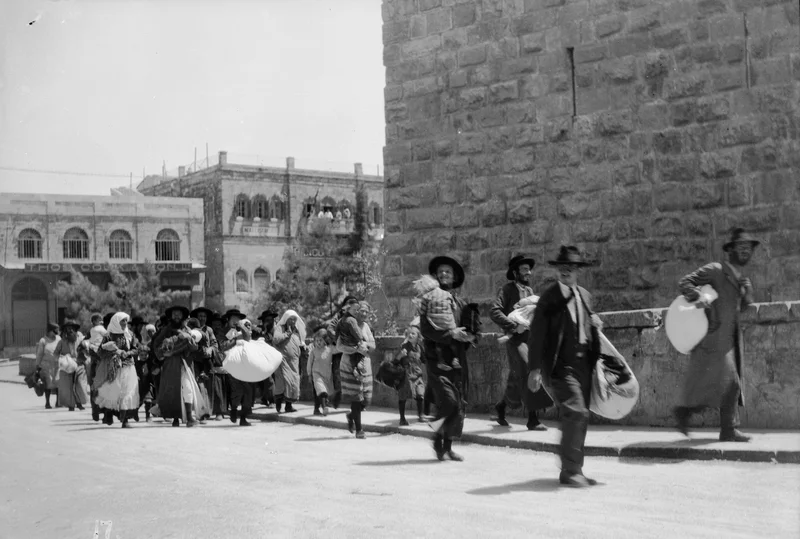
Violent clashes erupted between Palestinian Arabs and Jews in Mandatory Palestine, continuing throughout the month. The riots ultimately claimed 133 Jewish and 116 Arab lives.
The violence reflected growing tensions over Jewish immigration and land disputes. These conflicts foreshadowed the larger Arab-Israeli conflict that would dominate the region’s future.
1933 – Christie Pits Riot Occurs in Toronto
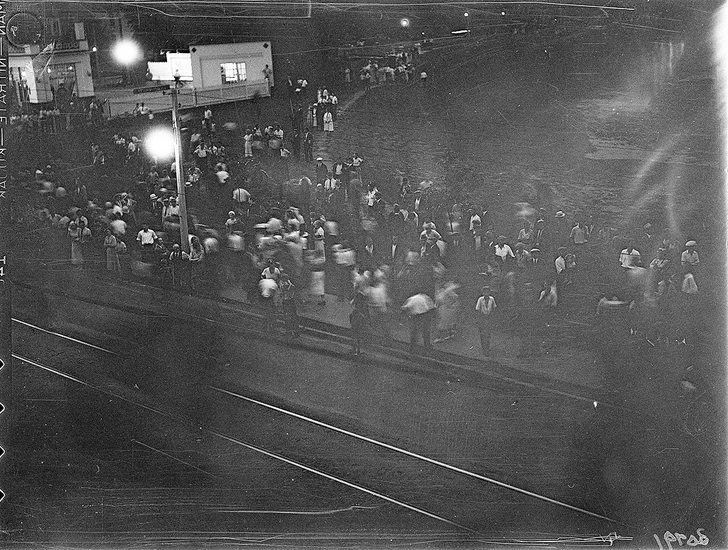
A violent riot erupted at Christie Pits in Toronto, reflecting ethnic and religious tensions in Canadian society. The confrontation involved multiple ethnic groups and highlighted social divisions.
The riot demonstrated the challenges of multiculturalism in depression-era Canada. Community leaders worked to address the underlying tensions that contributed to the violence.
1966 – House Un-American Activities Committee Investigates Anti-War Protesters
The House Un-American Activities Committee began investigating Americans who aided the Viet Cong during the Vietnam War. Anti-war demonstrators disrupted the proceedings, leading to fifty arrests.
The committee sought to introduce legislation criminalizing aid to North Vietnamese forces. The confrontation highlighted the growing domestic opposition to American involvement in Vietnam.
Business and Economic Events on August 16
2008 – Trump International Hotel and Tower Topped Off
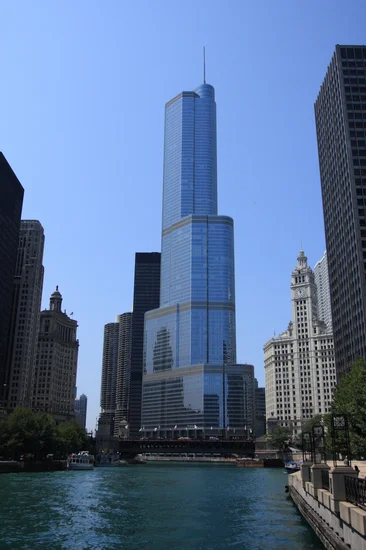
The Trump International Hotel and Tower in Chicago reached its full height of 1,389 feet, becoming the world’s highest residential building. The skyscraper represented a major architectural achievement in urban development.
The tower’s completion marked a significant milestone in Chicago’s skyline evolution. Real estate developers hailed the project as a symbol of luxury residential construction innovation.
2012 – Marikana Mining Massacre
South African police fatally shot 34 miners and wounded 78 others during an industrial dispute at Marikana near Rustenburg. The tragedy shocked the nation and highlighted ongoing labor tensions.
The incident became known as the Marikana Massacre and sparked national debates about workers’ rights. The violence reminded many of apartheid-era police brutality against black South Africans.
1920 – Henry Daglish Dies
[Note: This entry would be covered in the deaths section as per the formatting rules]
Transportation and Infrastructure on August 16
1927 – Dole Air Race Begins with Tragic Results

The Dole Air Race commenced from Oakland, California, to Honolulu, Hawaii, with eight participating aircraft. Six planes crashed or disappeared during the dangerous transpacific competition.
The race highlighted the extreme dangers of early aviation and oceanic flight attempts. Despite the tragic losses, the event demonstrated growing interest in commercial aviation development.
1913 – HMS Queen Mary Battlecruiser Completed
The Royal Navy completed construction of the battlecruiser HMS Queen Mary, adding significant firepower to Britain’s naval fleet. The warship represented the latest in naval engineering and design.
The battlecruiser would later serve in World War I naval operations. Her construction demonstrated Britain’s commitment to maintaining naval supremacy during the pre-war arms race.
1987 – Northwest Airlines Flight 255 Crashes

Northwest Airlines Flight 255, a McDonnell Douglas MD-82, crashed after takeoff in Detroit, Michigan, killing 154 passengers and crew plus two ground victims. Only one person survived the devastating accident.
The tragedy prompted significant improvements in aviation safety procedures and aircraft design. Investigators identified multiple factors that contributed to the deadly crash.
1923 – Ross Dependency Named
The United Kingdom named part of its claimed Antarctic territory the “Ross Dependency” and appointed New Zealand’s Governor-General as administrator. This administrative decision organized British Antarctic territorial claims.
The dependency encompassed vast areas of Antarctica under British sovereignty claims. New Zealand assumed responsibility for administering this remote polar territory.
Sports and Recreation on August 16
1920 – Ray Chapman Fatally Injured in Baseball Game

Ray Chapman of the Cleveland Indians was struck in the head by a Carl Mays fastball during a game against the New York Yankees. Chapman would die the following day, becoming the second major league player to die from game injuries.
The tragic incident led to significant changes in baseball safety regulations and equipment. The beaning sparked debates about dangerous pitching practices and player protection measures.
1930 – First British Empire Games Open
The inaugural British Empire Games opened in Hamilton, Ontario, with Governor General Viscount Willingdon presiding over the ceremony. The competition brought together athletes from across the British Empire.
These games served as the predecessor to the modern Commonwealth Games. The event fostered athletic competition and cultural exchange among British dominions and colonies.
2020 – August Complex Fire Burns California
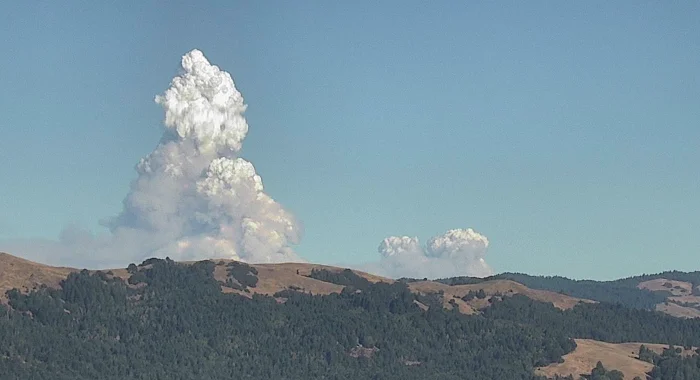
The August Complex fire consumed more than one million acres of California land, becoming one of the largest wildfires in state history. The massive conflagration destroyed vast areas of forest and threatened numerous communities.
Climate change and drought conditions contributed to the fire’s unprecedented scale and intensity. Firefighters from multiple agencies worked for months to contain the enormous blaze.
Notable Births on August 16
1958 – Madonna Born

Madonna Louise Ciccone was born in Bay City, Michigan, destined to become the “Queen of Pop.” Her innovative music, provocative performances, and business acumen would revolutionize popular culture.
The future superstar would challenge social norms and redefine female empowerment in entertainment. Her influence on music, fashion, and popular culture would span multiple decades.
1954 – James Cameron Born

Film director James Cameron was born in Kapuskasing, Ontario, Canada. His childhood fascination with technology and storytelling would shape his revolutionary approach to filmmaking.
Cameron would later direct groundbreaking films like “Terminator,” “Titanic,” and “Avatar.” His innovations in special effects and underwater filming techniques transformed cinema technology.
1913 – Menachem Begin Born
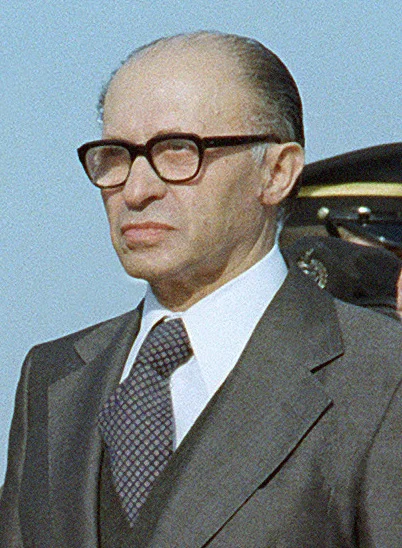
Menachem Begin was born in Brest-Litovsk, Russian Empire (now Belarus). His early experiences with anti-Semitism and political activism shaped his future leadership in Israel.
Begin would later serve as Israeli Prime Minister and win the Nobel Peace Prize. His political career spanned decades of Israeli independence and Middle Eastern diplomacy.
1930 – Frank Gifford Born

Frank Gifford was born in Santa Monica, California, beginning a life that would span professional football and broadcasting excellence. His athletic talents emerged early in his childhood.
Gifford would become a Hall of Fame NFL player and later a beloved Monday Night Football broadcaster. His career bridged the gap between playing and media excellence.
1958 – Angela Bassett Born

Angela Bassett was born in New York City, destined to become one of Hollywood’s most respected actresses. Her early interest in performing arts guided her educational and career choices.
Bassett would later earn Academy Award nominations and critical acclaim for powerful dramatic performances. Her portrayal of Tina Turner in “What’s Love Got to Do with It” became iconic.
1975 – Taika Waititi Born

Taika Waititi was born in Raukokore, New Zealand, beginning a creative journey that would blend indigenous culture with mainstream entertainment. His multicultural background influenced his unique artistic perspective.
Waititi would later direct critically acclaimed films like “Thor: Ragnarok” and “Jojo Rabbit.” His distinctive humor and storytelling approach brought fresh perspectives to Hollywood filmmaking.
1986 – Yu Darvish Born

Yu Darvish was born in Osaka, Japan, to a Japanese mother and Iranian father. His multicultural heritage and natural athletic ability set him apart from early childhood.
Darvish would become one of baseball’s premier pitchers in both Japan and Major League Baseball. His successful transition between leagues demonstrated the globalization of professional baseball.
Notable Deaths on August 16
1977 – Elvis Presley Dies

Elvis Presley, the “King of Rock and Roll,” died at Graceland in Memphis, Tennessee, at age 42. His death shocked the world and marked the end of an era in popular music.
Presley’s influence on music, fashion, and popular culture remained unmatched. His death triggered an unprecedented outpouring of grief from fans worldwide and cemented his legendary status.
1948 – Babe Ruth Dies

George Herman “Babe” Ruth, baseball’s most iconic player, died in New York City at age 53. His death marked the end of an era in American sports and popular culture.
Ruth’s home run records and larger-than-life personality had transformed baseball into America’s national pastime. His legacy continued to influence baseball and American culture long after his death.
1956 – Bela Lugosi Dies
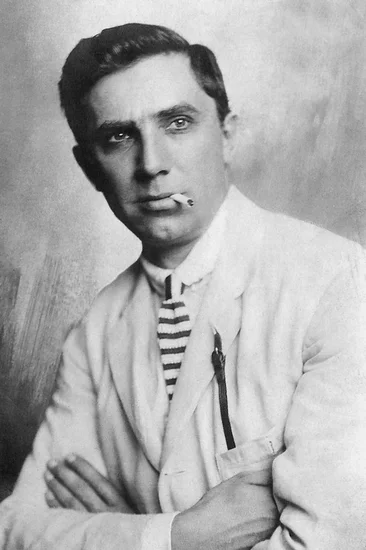
Bela Lugosi, the Hungarian-American actor famous for portraying Count Dracula, died in Los Angeles at age 73. His death ended the career of one of horror cinema’s most iconic performers.
Lugosi’s portrayal of Dracula became the definitive interpretation of the vampire character. His distinctive accent and dramatic presence established the template for countless horror film villains.
1959 – William “Bull” Halsey Dies

Admiral William “Bull” Halsey, one of America’s most celebrated World War II naval commanders, died at age 76. His aggressive leadership style earned him legendary status in naval history.
Halsey’s Pacific Theater victories, including the Battle of Leyte Gulf, helped secure Allied victory. His bold tactics and inspirational leadership became models for naval warfare strategy.
2018 – Aretha Franklin Dies

Aretha Franklin, the “Queen of Soul,” died in Detroit at age 76 after a long battle with pancreatic cancer. Her death marked the end of one of music’s most powerful and influential voices.
Franklin’s gospel-influenced vocal style and civil rights activism made her an American icon. Her rendition of “Respect” became an anthem for both civil rights and women’s empowerment movements.
2003 – Idi Amin Dies
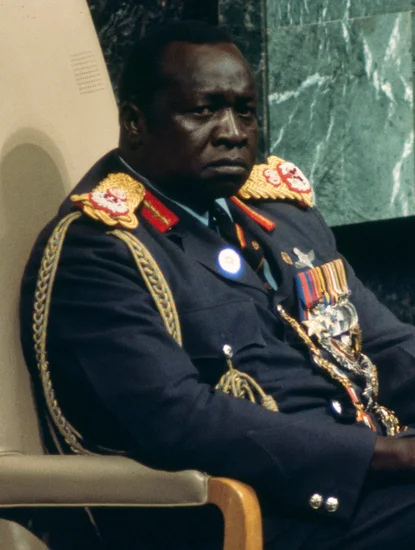
Idi Amin, the brutal dictator of Uganda, died in exile in Saudi Arabia at age 78. His death closed the chapter on one of Africa’s most notorious and violent regimes.
Amin’s eight-year rule resulted in the deaths of an estimated 300,000 Ugandans. His exile and death marked the end of one of the 20th century’s most brutal dictatorships.
1997 – Nusrat Fateh Ali Khan Dies

Nusrat Fateh Ali Khan, the legendary Pakistani Qawwali singer, died in London at age 48. His death silenced one of the world’s most extraordinary voices in devotional music.
Khan’s powerful vocals and spiritual performances had brought Qawwali music to international audiences. His collaborations with Western musicians helped bridge cultural divides through music.
Holidays and Observances on August 16
Bennington Battle Day (Vermont, United States)
Vermont observes Bennington Battle Day as an official state holiday, commemorating the 1777 Revolutionary War victory. The holiday honors the courage of American forces who defeated British and Hessian troops.
The battle represented a crucial turning point in the Revolutionary War’s northern campaign. Vermont residents celebrate with parades, historical reenactments, and community gatherings throughout the state.
Children’s Day (Paraguay)
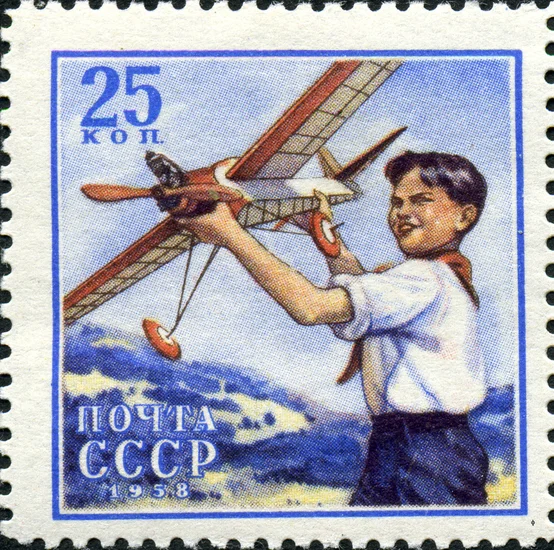
Paraguay celebrates Children’s Day on August 16, dedicating the day to honoring the nation’s youngest citizens. Schools, families, and communities organize special activities and events for children.
The holiday emphasizes the importance of children’s rights, education, and welfare in Paraguayan society. Government agencies and NGOs use the day to promote child protection and development programs.
National Airborne Day (United States)
The United States observes National Airborne Day, honoring the courage and service of airborne military forces. The holiday recognizes paratrooper units and their contributions to national defense.
Military bases and veteran organizations host ceremonies and demonstrations celebrating airborne traditions. The observance pays tribute to the bravery of soldiers who served in airborne divisions.
Restoration Day (Dominican Republic)
The Dominican Republic celebrates Restoration Day, commemorating the restoration of independence from Haiti in 1844. The holiday represents a crucial moment in Dominican national identity formation.
Dominicans celebrate with patriotic displays, cultural events, and historical remembrances. The day reinforces national unity and pride in Dominican sovereignty and cultural heritage.
Gabon Independence Day Begins
Gabon begins its Independence Days celebration, marking the country’s 1960 independence from France. The multi-day celebration showcases Gabonese culture, history, and national achievements.
Citizens participate in parades, cultural performances, and official ceremonies throughout the country. The holiday strengthens national identity and celebrates Gabonese sovereignty and cultural heritage.
